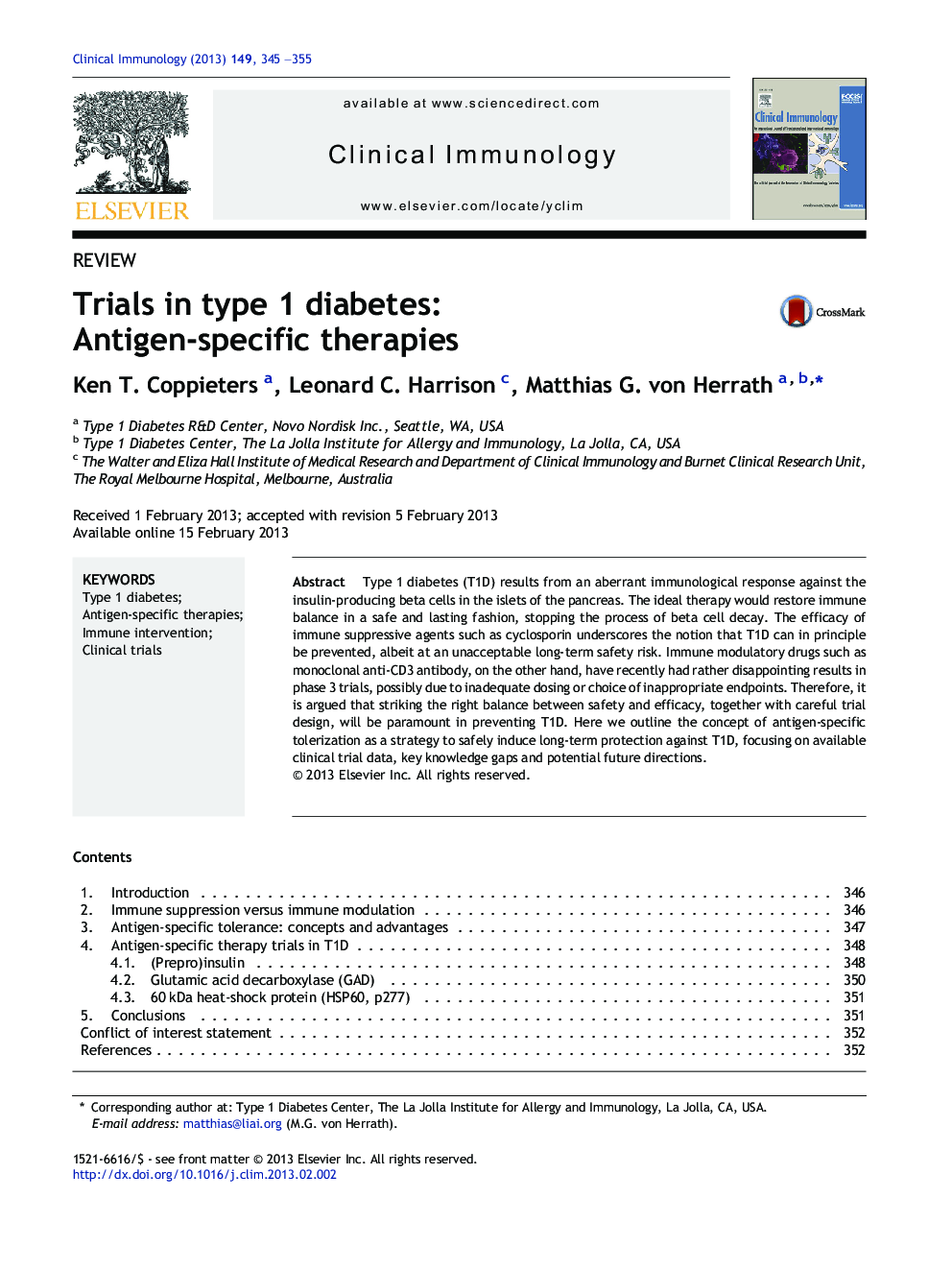| Article ID | Journal | Published Year | Pages | File Type |
|---|---|---|---|---|
| 3256940 | Clinical Immunology | 2013 | 11 Pages |
Type 1 diabetes (T1D) results from an aberrant immunological response against the insulin-producing beta cells in the islets of the pancreas. The ideal therapy would restore immune balance in a safe and lasting fashion, stopping the process of beta cell decay. The efficacy of immune suppressive agents such as cyclosporin underscores the notion that T1D can in principle be prevented, albeit at an unacceptable long-term safety risk. Immune modulatory drugs such as monoclonal anti-CD3 antibody, on the other hand, have recently had rather disappointing results in phase 3 trials, possibly due to inadequate dosing or choice of inappropriate endpoints. Therefore, it is argued that striking the right balance between safety and efficacy, together with careful trial design, will be paramount in preventing T1D. Here we outline the concept of antigen-specific tolerization as a strategy to safely induce long-term protection against T1D, focusing on available clinical trial data, key knowledge gaps and potential future directions.
► T1D can in principle be prevented, albeit at an unacceptable long-term safety risk. ► Modest preservation of beta cell function achieved in immune modulation trials ► Cellular immunology of antigen-specific tolerance is well-characterized in mice. ► No therapy yet that strikes the right balance between safety and efficacy ► Clinical translation of antigen-specific therapy for T1D can be improved
